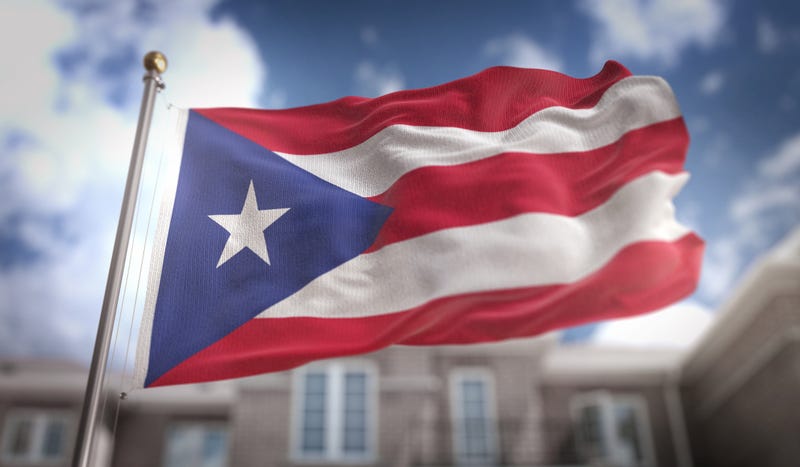
The House has passed a bill that could eventually lead to Puerto Rico becoming the 51st state.
The referendum gives Puerto Ricans the chance to vote on statehood or independence -- and requires Congress to accept statehood if the voters choose it.
Additionally, Puerto Ricans could choose a third option: independence with free association, the terms of which would be defined following negotiations over foreign affairs, U.S. citizenship and use of the U.S. dollar, the Associated Press reported.
The bill provides funding for a nonpartisan public education campaign to help voters understand each option and how it will affect them and their community before they cast their ballots. It also outlines a review process for the election and provides terms for a runoff if necessary.
The "Puerto Rico Status Act" passed the Democrat-controlled House 233-191 with Republican support -- but isn't expected to get far in the Senate, where it faces a ticking clock before the end of the year and Republican lawmakers who have long opposed statehood, according to the AP.
"This bill offers a real opportunity to end the colonization that has oppressed the people of Puerto Rico for more than a century," House Natural Resources Committee Chair Raúl Grijalva (D-AZ) said in a statement. "Now, the Senate must also act to recognize that the status quo in Puerto Rico is unjust and unsustainable."
If the bill passes the Senate, a vote on a binding referendum would be held in November 2023.
House Majority Leader Steny Hoyer (D-ME) said Puerto Ricans are American citizens, and should be treated as such.
"They contribute to American culture. hey help protect America’s national security. They support the American economy and our shared prosperity," Hoyer said on the House Floor. "For far too long, however, the people of Puerto Rico have been excluded from the full promise of American democracy and self-determination that our nation has always championed."
"We owe it to Puerto Ricans to bring an end to their island’s 124-year-old status as a U.S. territory and to grant them control over their island's political future," he added.
Hoyer has advocated for Puerto Rico's statehood since the 1970s, but said "the decision must belong to the Puerto Rican people and to them alone. The Puerto Rico Status Act will grant them that choice."
Puerto Rico has been a U.S. territory for more than 120 years -- a status that limits the island's full political, economic, and social development, and has implications for many aspects of Puerto Rican life, including access to resources and services, voting power, political representation, citizenship, immigration, trade and more.
Puerto Rico's political status has been considered several times over the years. The last referendum was held in November 2020, with 53% of votes for statehood and 47% against, with only a little more than half of registered voters participating, per the AP.
Congresswoman Elise Stefanik (R-NY) said while she supports statehood for Puerto Rico, she can't get behind the legislation because it allows for independence.
"The United States should bring the over three million American citizens in Puerto Rico closer, rather than pushing them further away," she said in a statement.
House Natural Resources Committee Ranking Member Bruce Westerman (R-AR) said the "rushed bill falls far short of a solution."
"It hasn't gone through any semblance of regular order, has had zero hearings, fails to include all status options available for Puerto Rican voters to consider, creates murky citizenship questions, and does absolutely nothing to improve the condition of Puerto Rico's economy, energy security, infrastructure or fiscal stability," he said in a statement. "Puerto Rico deserves better."


